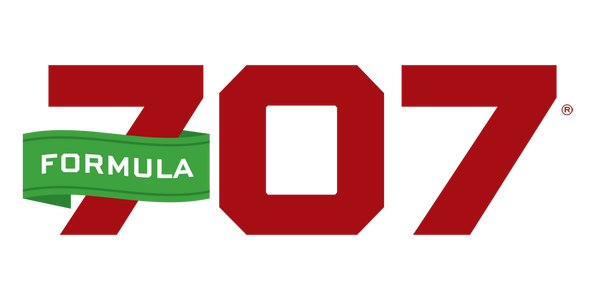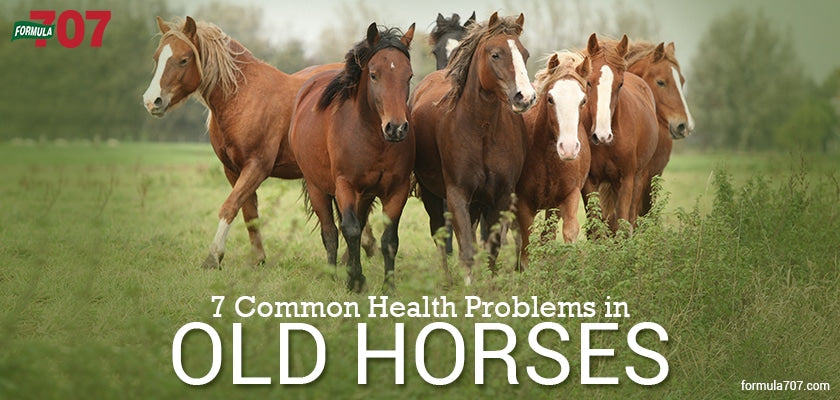1. Dental Issues
As they age, horses tend to develop issues with their dental health. Years of uneven grinding can result in uneven wearing of the teeth, loose molars, and incredibly sharp points. Your horse may also experience abrasions in the tongue and cheeks, which could result in difficulty eating and eventually, weight loss. If you notice that your horse has been spitting out food that it’s chewed up partially or is dribbling grain, make sure you have a vet check for dental issues. And it’s crucial that you arrange for a vet to do a dental exam on your horse at least once every year. If your horse has any missing teeth, the exams should occur more often.
If you notice that your horse has been spitting out food that it’s chewed up partially or is dribbling grain, make sure you have a vet check for dental issues. And it’s crucial that you arrange for a vet to do a dental exam on your horse at least once every year. If your horse has any missing teeth, the exams should occur more often.
2. Arthritis
Although arthritis isn’t just an issue among older horses, the condition tends to worsen with age. You’ll find that most horses that are older than 20 will have some arthritis. The reason for this is because the proteoglycans in the cartilage such as hyaluronic acid and chondroitin sulfate decrease as they age, causing wear and tear on cartilage and joints Additionally, horses lose muscle mass as they age, making their tendons and ligaments weaker. This will then negatively impact the joints because the tissues help in stabilizing the joints to prevent abnormal movements. Light exercises are crucial for preventing and alleviating arthritis symptoms. If possible, let your horse graze all day in the pasture. And if your horse is overweight, you should start managing its weight to prevent excess weight from straining its joints.3. Equine Cushing’s Disease
Another common health problem among older horses is equine Cushing’s disease. This is a result of a portion of the pituitary gland being overactive, and is normally seen in horses that are around 20 years old. A horse that has Cushing’s disease may drink excessively and urinate excessively and may even have a pot belly. And if the horse has a long, wavy coat, it may not shed during summer. Horses with Cushing’s disease may also have a weakened immune system, and they are predisposed to other conditions such as laminitis. They may have recurrent infections that have no probable cause. Your vet will need to do several blood tests to diagnose the condition. Although there is no cure for it, there are medications that can help manage it.4. Weight Issues
It’s extremely common for older horses to have trouble maintaining a healthy weight. As mentioned earlier, dental issues can prevent a horse from eating properly and thus maintaining a healthy weight. Even if there isn’t trouble with the teeth, other unrecognized pain such as abscess or pain in the jaw can be the cause. But aside from these, there could also be other reasons why your horse isn’t gaining weight. There may be decreased saliva production that makes it difficult for them to swallow their food. Older horses may also experience trouble producing enough stomach acid that helps with digestion. This poor digestion issue can result in weight loss because the essential nutrients aren’t getting absorbed effectively.
Some older horses may even experience bullying from younger horses. This can stress them out and cause them to develop stomach ulcers. If you keep your older horses in a herd, they may also fail to compete effectively for food, so they may not be eating enough. You should consider feeding your horse supplements that can facilitate weight gain.
But aside from these, there could also be other reasons why your horse isn’t gaining weight. There may be decreased saliva production that makes it difficult for them to swallow their food. Older horses may also experience trouble producing enough stomach acid that helps with digestion. This poor digestion issue can result in weight loss because the essential nutrients aren’t getting absorbed effectively.
Some older horses may even experience bullying from younger horses. This can stress them out and cause them to develop stomach ulcers. If you keep your older horses in a herd, they may also fail to compete effectively for food, so they may not be eating enough. You should consider feeding your horse supplements that can facilitate weight gain.

